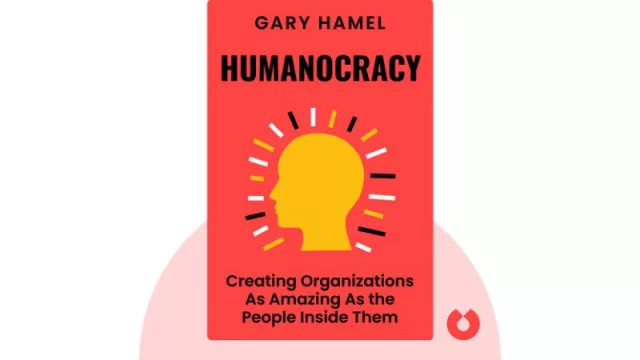In this age of digital acceleration and social transformation, understanding and implementing humanocracy is more than just a trend—it’s a lifeline for survival and growth. Get the inside scoop on who’s driving this revolution, why it matters right now, and how to put it to work in your organization, syncing strategy and operations for flawless execution.
-
Micro Note IN Miami: Executive Summary & Key Tips
Where does humanocracy come from, and how can it transform your business?
-
Key Authors & Book: Gary Hamel and Michele Zanini, “Humanocracy: Creating Organizations as Amazing as the People Inside Them” (2020)
-
Core Concept: Replace old-school bureaucracy with agile, decentralized structures built around human talent.
-
Benefits: More innovation, greater adaptability, highly engaged employees, and next-level results.
-
Pioneering Companies: Haier, Nucor, Morning Star, Buurtzorg, and disruptors like Elon Musk are paving the way.
-
Post-Pandemic Context: Organizational agility isn’t optional anymore—it’s the line between leading and lagging.
-
Miami on the Map: Multinationals and local startups are embracing humanocracy to recruit top global talent and attract international capital.
The New Business DNA in a Post-Pandemic World—No Bosses Needed (And Here’s Why Miami Is Leading the Charge)
Who are the architects? What’s the origin story?
Humanocracy is a term coined by Gary Hamel—one of the most influential management gurus of the 21st century, per The Wall Street Journal—and Michele Zanini, co-founder of the Management Lab. Their book, “Humanocracy,” distills decades of research and real-world case studies into a radical manifesto: bureaucracy is killing innovation and employee engagement.
Ready to kill bureaucracy and unleash innovation?
Humanocracy isn’t a fleeting trend—it’s a call to fundamentally reinvent the company from the inside out. In a world where change is the only constant, organizations that bet on self-management, agility, and human potential will always be a step ahead. Ready to lead the transformation from Miami?
Standout Tips
-
Empower Teams: Push key decisions to those closest to the customer.
-
Cut the Red Tape: Automate processes, ditch unnecessary paperwork.
-
Promote Experimentation: Reward initiative and smart risk-taking.
-
Connect Purpose & Performance: Make sure every team member knows the “why” behind their work.
-
Measure Results, Not Time: Focus on real value indicators—not hours at the desk.
B) Expanded Note IN Miami: The Humanocracy DNA
According to Hamel and Zanini, bureaucracy drains over $9 trillion annually from the global economy in lost productivity and disengagement. Only 15% of workers worldwide feel truly engaged at work (Gallup, 2023).
Why does this matter for business right now?
The post-pandemic era brings unprecedented challenges: digital disruption, global competition, generational shifts. Humanocracy offers a bold answer—organizations that self-manage, pivot quickly, and maximize human potential.
Real-World Example: Haier, the Chinese Appliance Giant
Under Zhang Ruimin’s vision, Haier broke itself into 4,000+ autonomous micro-enterprises. The result? Haier is now a global leader in innovation and customer satisfaction, with steady growth—even through the pandemic.
Strategy & Operations: The Power of Perfect Sync
The hardest challenge for any business? Getting strategy and operations in lockstep. Humanocracy makes it happen because:
-
No Bottlenecks: Decisions are instant, data-driven, and frontline-empowered.
-
Aligned Objectives: Every “cell” runs with clear goals that tie to the company’s purpose.
-
Radical Transparency: Information flows freely, problems get flagged and fixed before they escalate.
Watch this amazing video:
https://www.youtube.com/watch?v=zUeXmygoLfU
Key Stat: According to McKinsey (2023), agile, self-managed companies outperform their traditional peers by 30% in innovation speed and customer satisfaction.
Who’s Going Humanocratic? Influential Cases & Voices
-
Morning Star (Agro-industry, USA): No bosses—employees design their own roles and make public performance commitments.
-
Buurtzorg (Healthcare, Netherlands): Autonomous nursing teams cut costs, boost patient care.
-
Nucor (Steel, USA): Profit-sharing and decentralized decision-making; record profitability.
-
Elon Musk: Even without the label, Tesla and SpaceX run on distributed leadership, smart risk, and high-performance self-managing teams.
Miami: The Latin Hub of Humanocracy
Miami, as a capital of innovation and cultural mashup, is the perfect playground for humanocracy. Local tech startups and global multinationals are adopting decentralized models to attract world-class talent and thrive in hypercompetitive markets. That “Latin flavor” meets Silicon Valley agility, creating a one-of-a-kind ecosystem.
Local Example: Pipefy, a scale-up founded by Brazilians in Miami, uses humanocracy principles to manage remote global teams—marrying technology, purpose, and diversity.
Follow us on: IG: @infonegociosmiami (Síguenos).
C) Frequently Asked Questions (FAQs)
What’s the difference between humanocracy and holacracy?
Holacracy is a specific self-management framework with distributed roles; humanocracy is broader, focused on busting bureaucracy and unleashing human talent.
Is it viable for traditional companies?
Absolutely—but it takes deep cultural change, visionary leadership, and a clear roadmap.
What’s the first step to implementing it?
Audit your processes, find the bottlenecks, and give real autonomy to pilot teams.
What are the risks?
Internal pushback, fuzzy role definitions, and poorly defined performance metrics.
Are there real Miami success stories?
Yes—fintechs, healthtechs, and multinationals with Miami HQs are already experimenting with agile, self-managed models.
So—are you ready to unleash human potential in your company? Share this note and join the movement of Miami leaders transforming the world, one organization at a time.
Humanocracy, Gary Hamel, bossless companies, organizational innovation, post-pandemic leadership, strategy and operations, Miami business, management 4.0
Subscribe for free to receive all strategic information and be part of the largest business and culture community across the Anglophone-Latino world!:
Contact Infonegocios MIAMI:
Read Smart, Be Smarter!
Read Smart. Be Smarter.












Tu opinión enriquece este artículo: